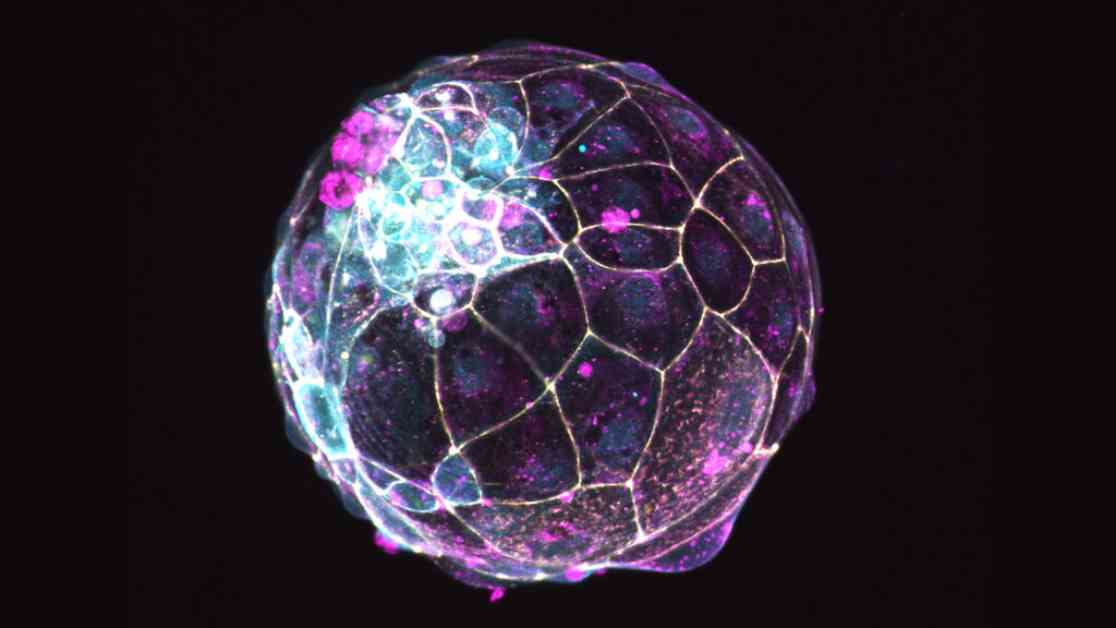A new report from the Nuffield Council on Bioethics in the UK is calling for guidelines and restrictions on the use of stem cells to create embryo models that mimic aspects of embryonic development. The report emphasizes the need for clear boundaries in this rapidly growing field of research.
According to the report, researchers should not attempt to use stem cell-based embryo models to initiate a pregnancy in either humans or animals. Additionally, they should not allow these models to advance to a stage where they could potentially experience pain or awareness. While current models are still too basic to achieve these outcomes, the report highlights the importance of establishing ethical standards before such advancements become a possibility.
The field of stem cell research is evolving quickly, with research teams worldwide working to create more sophisticated models. This progress has led to increased competition among different groups, raising questions about the adequacy of current governance structures to address potential ethical concerns.
As scientists continue to push the boundaries of what is possible with stem cell-based embryo models, it is essential for policymakers and scientific organizations to collaborate on developing clear guidelines and restrictions. By establishing these parameters early on, the research community can ensure that ethical considerations are integrated into the development of this innovative technology.
The Nuffield Council on Bioethics report serves as a reminder of the need for proactive ethical oversight in emerging fields of research. As the scientific community makes strides in creating more complex models of embryonic development, it is crucial to prioritize ethical considerations and establish safeguards to protect the well-being of both humans and animals involved in these studies. By setting clear red lines on research practices, policymakers can help shape the future of stem cell-based embryo models in a responsible and sustainable manner.


















